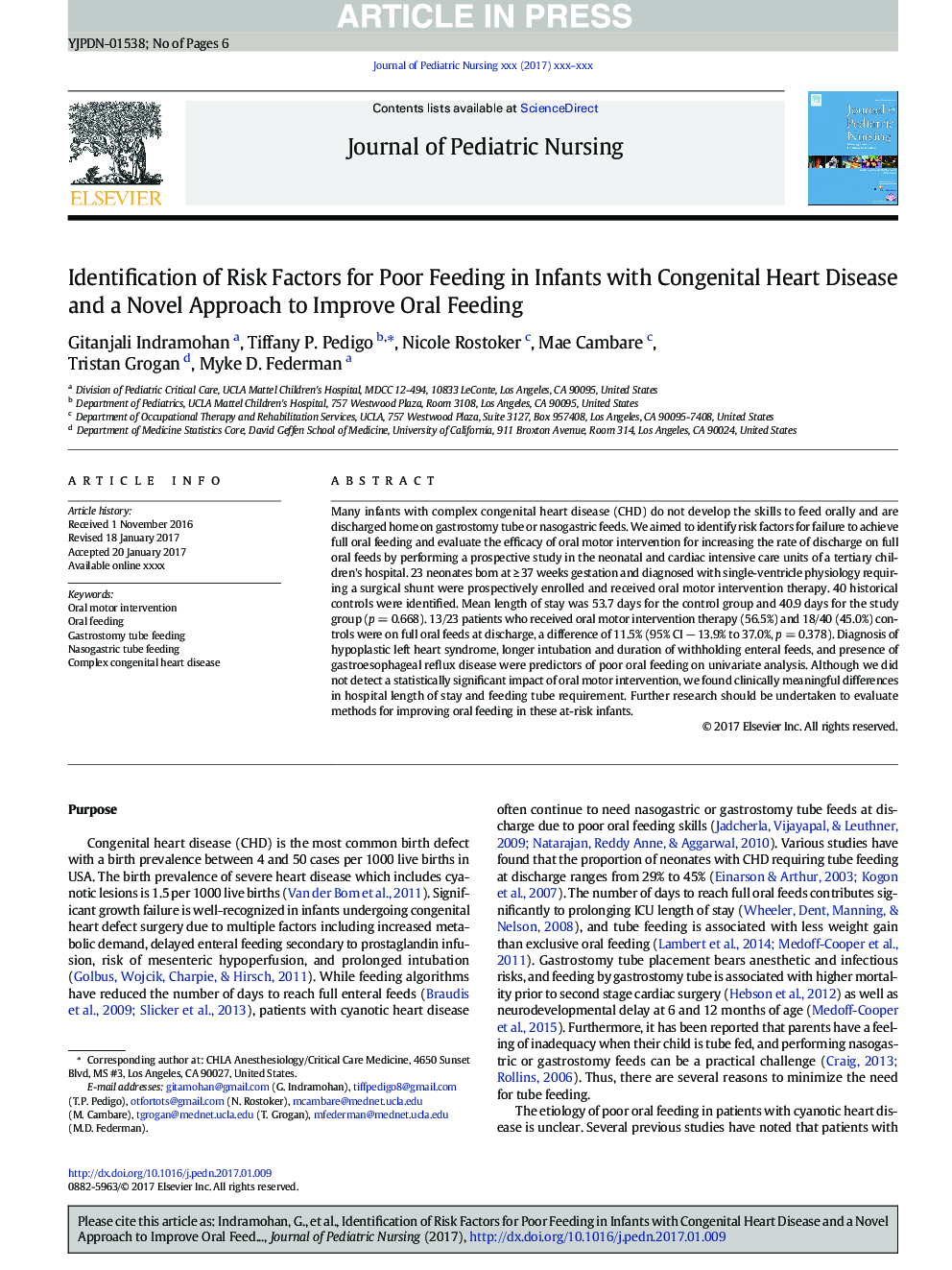| Article ID | Journal | Published Year | Pages | File Type |
|---|---|---|---|---|
| 5570119 | Journal of Pediatric Nursing | 2017 | 6 Pages |
Abstract
Many infants with complex congenital heart disease (CHD) do not develop the skills to feed orally and are discharged home on gastrostomy tube or nasogastric feeds. We aimed to identify risk factors for failure to achieve full oral feeding and evaluate the efficacy of oral motor intervention for increasing the rate of discharge on full oral feeds by performing a prospective study in the neonatal and cardiac intensive care units of a tertiary children's hospital. 23 neonates born at â¥Â 37 weeks gestation and diagnosed with single-ventricle physiology requiring a surgical shunt were prospectively enrolled and received oral motor intervention therapy. 40 historical controls were identified. Mean length of stay was 53.7 days for the control group and 40.9 days for the study group (p = 0.668). 13/23 patients who received oral motor intervention therapy (56.5%) and 18/40 (45.0%) controls were on full oral feeds at discharge, a difference of 11.5% (95% CI â 13.9% to 37.0%, p = 0.378). Diagnosis of hypoplastic left heart syndrome, longer intubation and duration of withholding enteral feeds, and presence of gastroesophageal reflux disease were predictors of poor oral feeding on univariate analysis. Although we did not detect a statistically significant impact of oral motor intervention, we found clinically meaningful differences in hospital length of stay and feeding tube requirement. Further research should be undertaken to evaluate methods for improving oral feeding in these at-risk infants.
Related Topics
Health Sciences
Medicine and Dentistry
Perinatology, Pediatrics and Child Health
Authors
Gitanjali Indramohan, Tiffany P. MD, Nicole Rostoker, Mae Cambare, Tristan Grogan, Myke D. Federman,
